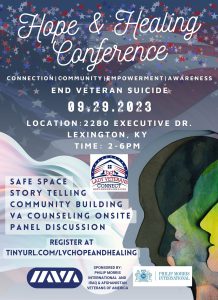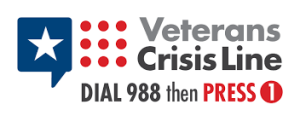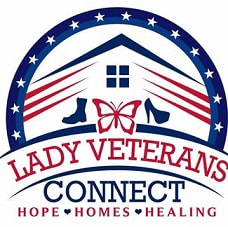Post-Traumatic Stress Disorder (PTSD) is a mental health condition that can develop after a traumatic event. Coping with PTSD often requires a combination of strategies, and it’s essential to consult with a mental health professional for personalized guidance. However, here are ten general ways to cope with PTSD:

- Seek Professional Help: The most crucial step is to reach out to a mental health professional, such as a therapist or psychiatrist, who specializes in trauma and PTSD. Therapy, such as Cognitive Behavioral Therapy (CBT) or Eye Movement Desensitization and Reprocessing (EMDR), can be highly effective. All mental health counseling is now free at the VA for all veterans.
- Medication: In some cases, medication prescribed by a psychiatrist may help manage symptoms such as anxiety and depression. Medication can be a valuable part of a treatment plan, especially when combined with therapy.
- Support Groups: Joining a PTSD support group can provide a sense of belonging and understanding. Sharing experiences with others who have gone through similar traumas can be therapeutic.
- Mindfulness and Relaxation Techniques: Practicing mindfulness, deep breathing exercises, and progressive muscle relaxation can help reduce anxiety and hyperarousal. These techniques can be learned in therapy or through self-help resources.
- Healthy Lifestyle: Maintaining a balanced diet, getting regular exercise, and prioritizing sleep can have a positive impact on overall mental health. Avoiding excessive caffeine and alcohol is essential.
- Limit Exposure to Triggers: Identify and minimize exposure to situations, people, or stimuli that trigger traumatic memories or intense emotional responses. This might include avoiding certain places, media, or conversations.
- Structured Routine: Establishing a daily routine can provide stability and a sense of control. Consistency in activities, sleep, and meals can help reduce anxiety.
- Journaling: Keeping a journal can be a useful way to process thoughts and emotions related to the traumatic event. Writing about your experiences and feelings may help you gain clarity and perspective.
- Social Support: Lean on friends and family for emotional support. Communicate your needs and boundaries to those close to you, so they can better understand and assist you.
- Education: Educate yourself about PTSD. Understanding the condition, its symptoms, and available treatments can empower you to actively participate in your recovery.
Remember that coping with PTSD is a journey, and recovery can take time. It’s essential to be patient with yourself and seek help when needed. Also, what works best for one person may not be the same for another, so finding the right combination of coping strategies may require some trial and error. Ultimately, professional guidance and support from loved ones can be instrumental in managing and overcoming PTSD.
To learn more about our programs and other organizations in your corner, please attend the Hope & Healing Conference September 29th, 2023 from 2-6pm EST. Located at the KHSAA 2280 Executive Drive, Lexington, KY. Register today to save your spot – tinyurl.com/lvchopeandhealing


*This article was written using the assistance of ChatGPT
